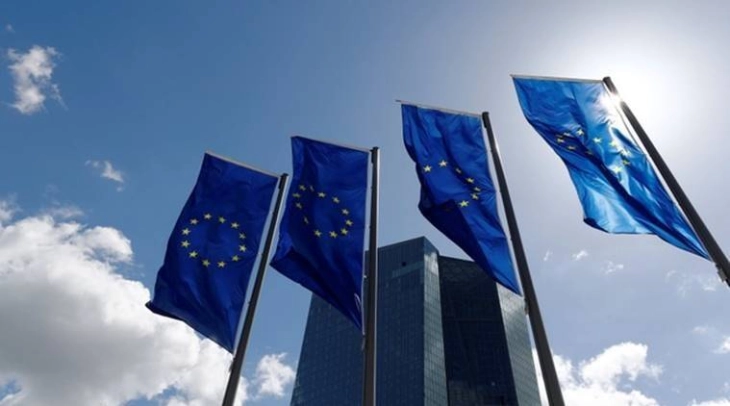Initiative for change of EU decision-making process relates to enlargement as well, says Pirc-Musar
- Slovenian President Nataša Pirc Musar said Tuesday the initiative raised by seven European Union member-states, including Slovenia, over a change in the decision-making process on the Union's common foreign and security policy, relates to the enlargement process as well.
- Post By Ivan Kolekevski
- 14:55, 13 June, 2023

Skopje, 13 June 2023 (MIA) - Slovenian President Nataša Pirc Musar said Tuesday the initiative raised by seven European Union member-states, including Slovenia, over a change in the decision-making process on the Union's common foreign and security policy, relates to the enlargement process as well.
"Slovenia is one of the seven countries that want certain issues to be taken through a qualified majority not consensus. As far as I know, this relates to the enlargement process as well, and this can facilitate the process for a country that wants to join the EU," President Pirc Musar told reporters at a joint press conference with host Stevo Pendarovski.

Pirc Musar added that blockades within the EU are sometimes a consequence of bad decisions that do not move things in the desired direction, especially those related to the region of the Western Balkans.
"Slovenia will continue to support the practice of decisions not adopted through 100-percent consensus," she noted.
Foreign ministers of seven EU member-states have advocated for the use of qualified majority voting (QMV) in taking decisions related to the Union's common foreign and security policy, Brussels-based web portal Politico has reported. The initiative is advocated by German Foreign Minister Annalena Baerbock, Belgian FM Hadja Lahbib, Luxembourg FM Jean Asselborn, Netherlands FM Wopke Hoekstra, Romanian FM Bogdan Aurescu, Slovenian FM Tanja Fajon, and Spanish FM José Manuel Albares Bueno, who propose a pragmatic approach, focusing only on questions of EU Foreign and Security Policy and utilizing provisions already built into the Treaty on European Union (TEU) in a more flexible way that can work for everyone.

"We want to move beyond old dividing lines between those in favor of more majority decision-making and those opposed to it. We are not advocating for treaty changes, nor do we envision drawn out academic debate," reads the initiative.
The FMs propose greater use of “constructive abstentions", which still allows a decision to pass — namely, by not objecting to it, and thus not stopping the other 26 members from moving forward.
"We saw just how effective 'constructive abstentions' can be last October, when the Foreign Affairs Council voted on the new EU training mission for the Ukrainian military. We want to build on this emerging trend - and we commit ourselves to systematically scrutinizing our own positions with a view to switching from a vote against to a constructive abstention," reads the proposal.
The seven FMs also propose that the QMV be put to a practical test, with certain EU foreign policy areas already allowing for decision-making by qualified majority, based on article 31 (2) of TEU.
"If, for example, the Council has unanimously decided to set up a civilian EU mission, the operative terms of that mission could then be decided by QMV. We could similarly apply QMV when deciding on the basis of common EU positions in international human rights forums," say the ministers.
In addition, they suggest adapting the way decisions are taken in areas that do not require formal voting but consensus applies in practice, nonetheless.
According to the petitioners, an EU that produces solid, tangible results is needed, but also enhancement of its capacity to deliver in times of crisis.
Photo: MIA archive







